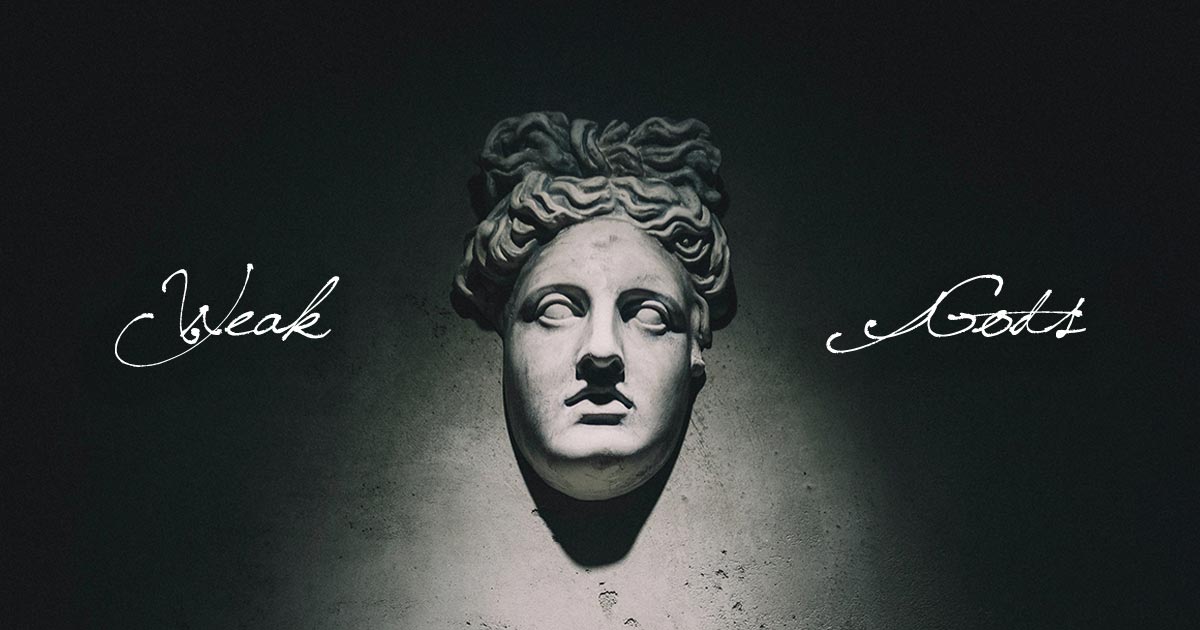Weak Gods

I am sharing today’s poem because it was the first one I came across when I opened a random notebook. THIS IS REAL LIFE, PEOPLE.
I wrote this during my senior year in undergrad in an overview course of the Classical World. We were studying Sappho and other ancient poets whose works exist only in fragments, and specifically looking at Sappho 1, a love poem where she prays to Aphrodite to get someone to fall in love with her. I won’t say much more than that about the poem, since mine has nothing to do with the poem itself. No—apparently the prof was lecturing about the strength of the gods and their need for worshippers or something—maybe because of the reference to Helen and the competition between three goddesses that inadvertently kicked off the Trojan war—and of course I in my faith spun into my own theological world.
I still believe what I wrote in my poem, though I would add a ton of nuance to “not sacrifice, but service.” “Sacrifice” really is a stand-in for knowing the Law as presented in the Pentateuch, and following the letter of the law regarding sacrificing lambs on the altar, but ignoring all the calls for mercy and compassion on each other (represented by “service” here). This is not a problem that disappeared with the destruction of the temple in Jerusalem. As the recent SBC report demonstrated, the denomination’s leadership cares more about their theology and reputation than that pastors in their denomination are getting away with rape and child sexual abuse. I have so much more to rant about there, but that’s not the point of this poem, so I’ll just leave it there.
Weak Gods
Originally written August 29, 2003
It’s a weak god, who needs
a human to keep his divinity,
who needs the worship
of those who are flesh.Weak are they who require
the blood of a sacrifice,
the snaking perfume of incense
streaming up through the clouds.For if a god cannot live without
the songs of adoration
of his followers, then it would be
better if the god
were left
to die.But he is a true
divinity, he who thrives
without worshippers,
who desires not sacrifice,
but service
which stems out of love
for the god.
The one who deserves the glory
is the one who serves his people
because he, too, loves them,Who created them for pleasure,
for he rejoices in creating.
Who requires obedience
because it is good for his people
and not just for him.This, not those who need, is the God
to whom, in the end,
all will bow
and sing, “Glory!”
Halleleujah, Amen.
Photo by Egor Myznik on Unsplash
